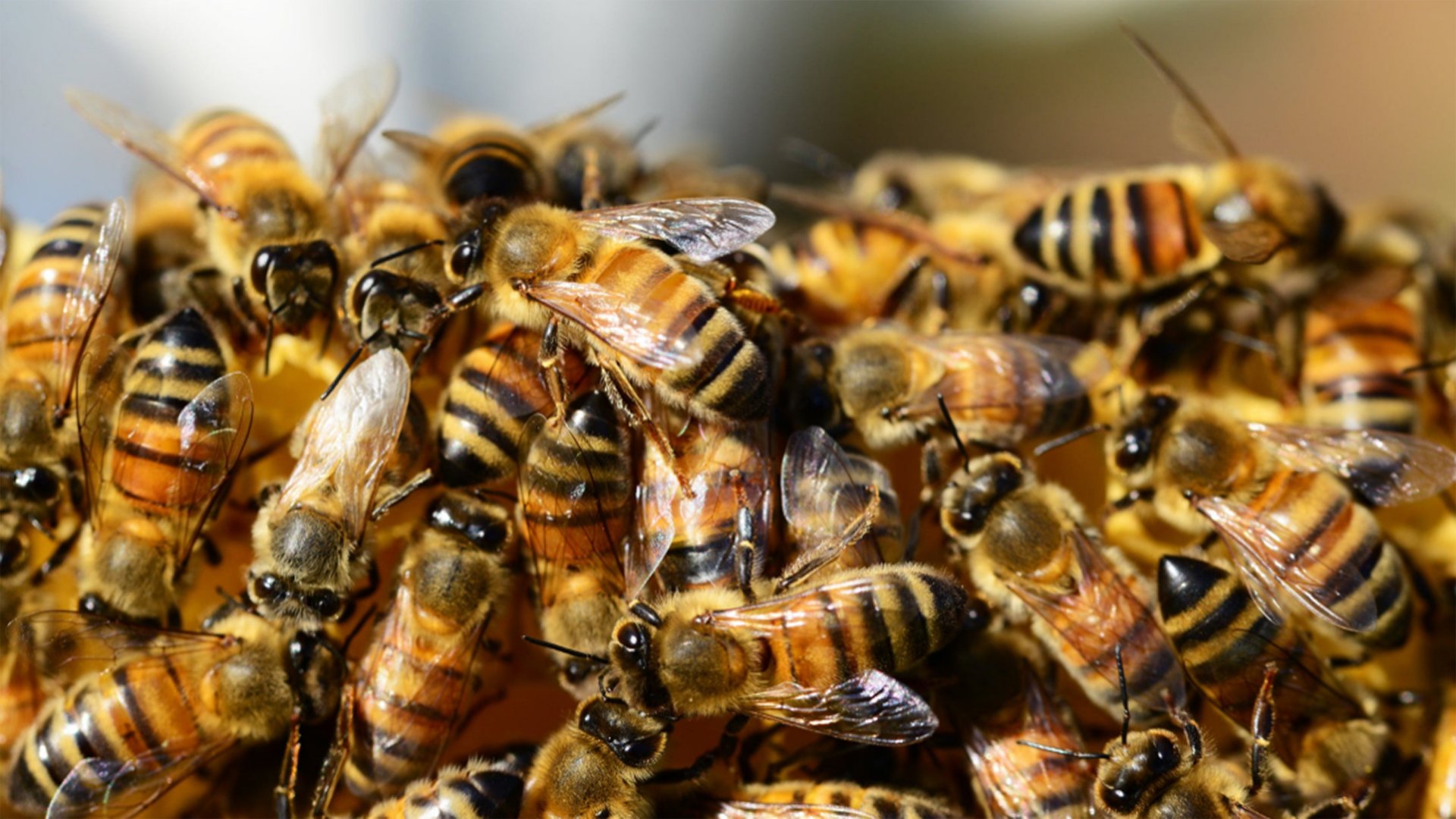Bee bread
Bees collect nectar and pollen from plants for food. However, they only eat a portion of this themselves, and store the rest for their larvae. They use the hexagonal cells of the honeycomb for storage; these are the breeding cells that also contain the eggs. In addition to the nectar and pollen, microbes from both the bees and from flowers can also be found here, in a mixture referred to as bee bread. The microbiome of bee bread was largely unknown until recently.
Protection
Research at the University of Lancaster has now shown that the microbial diversity in bee bread depends on diversity in the vegetation. For example, monoculture, where only a single species of plant is grown on a section of land, will yield fewer types of pollen and microbes. Conversely, greater diversity in plant growth will yield a greater diversity in microbes and contribute to bee conservation. These microbes can protect the bee by giving it better immunity to infections and preserving food in the form of bee bread, among other things.
Preservation
Researchers at the University of California have discovered three species of lactic acid bacteria in bee bread that might help to preserve it. This is important for the health of the larvae. 'An egg might not hatch until several days after it has been laid, after which it might take another week before the larva has finally eaten all of the nectar and pollen,' Quinn McFrederick, leader of the research team, explains. Humans likewise use lactic acid bacteria to preserve food, like dairy products and pickled vegetables. The researchers are currently engaged in ongoing research into lactic acid bacteria and their possible role.
Healthy bee bread
Both studies indicate that microbes contribute to the survival of bees in various ways. A greater range of diverse plants yields a greater range of diverse microbes, and healthy bee bread raises healthy larvae. The studies consider the problems bees are currently facing in a new light, but also present opportunities. Bee bread cannot be healthy without the right microbes.
Sources: McFrederick et al. (2018) - Lactobacillus micheneri sp. nov., Lactobacillus timberlakei sp. nov. and Lactobacillus quenuiae sp. nov., lactic acid bacteria isolated from wild bees and flowers.
Donkersley et al. (2018) - Bacterial communities associated with honeybee food stores are correlated with land use.

